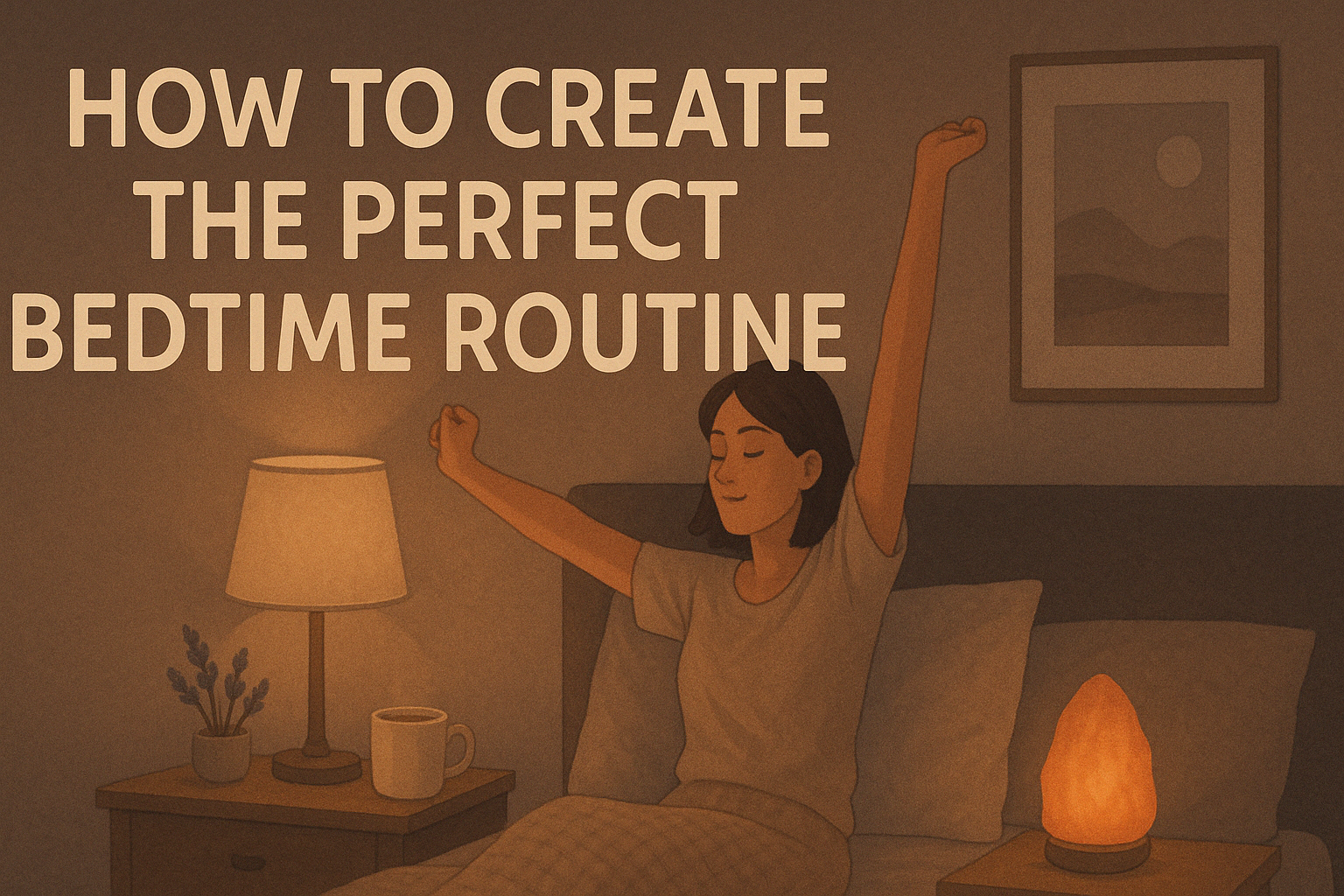A consistent bedtime routine is one of the most powerful tools for improving sleep quality. By establishing regular pre-sleep habits, you signal to your body and mind that it's time to wind down, making it easier to fall asleep and enjoy more restorative rest.
Why a Bedtime Routine Matters
Our bodies thrive on consistency and rhythm. A regular bedtime routine works with your body's natural circadian rhythm—your internal clock that regulates the sleep-wake cycle. Research shows that consistent bedtime routines can:
- Reduce the time it takes to fall asleep
- Improve sleep quality and duration
- Lower stress and anxiety levels
- Enhance daytime alertness and performance
- Strengthen your circadian rhythm
- Create a psychological association between specific activities and sleep
Components of an Ideal Bedtime Routine
The perfect bedtime routine is personal and should be tailored to your preferences and lifestyle. However, certain elements have been shown to be particularly effective for promoting quality sleep:
1. Consistent Timing
Start your routine at approximately the same time each night, ideally 30-60 minutes before your target bedtime. This consistency reinforces your body's sleep-wake cycle.
2. Digital Detox
The blue light emitted by screens interferes with melatonin production, the hormone that signals your body it's time to sleep. Additionally, content on devices can be stimulating rather than relaxing.
3. Relaxation Techniques
Incorporate activities that help your mind and body transition from the alertness of day to the restfulness of night.
Effective relaxation techniques:
- Deep breathing exercises (try the 4-7-8 method)
- Progressive muscle relaxation
- Gentle stretching or bedtime yoga
- Meditation or mindfulness practice
- Reading a physical book (fiction works best for many)
- Listening to calming music or nature sounds
- Taking a warm bath or shower
4. Optimize Your Sleep Environment
Part of your routine should include preparing your bedroom for optimal sleep:
| Factor | Optimal Condition |
|---|---|
| Temperature | 60-67°F (15-20°C) |
| Light | As dark as possible (use blackout curtains if needed) |
| Noise | Quiet or consistent white noise |
| Bedding | Clean, comfortable, and appropriate for the season |
5. Mindful Consumption
What you consume in the hours before bed can significantly impact your sleep quality:
Avoid:
- Caffeine (coffee, tea, chocolate) 6+ hours before bed
- Alcohol close to bedtime
- Large meals within 2-3 hours of sleep
- Spicy or heavy foods that may cause discomfort
Consider:
- Herbal teas (chamomile, valerian, lavender)
- Small protein-rich snacks if hungry
- Tart cherry juice (natural source of melatonin)
- Warm milk with honey (traditional remedy)
Sample 30-Minute Bedtime Routine
Here's an example of how you might structure a 30-minute bedtime routine:
- 30 minutes before bed: Turn off all screens and dim the lights in your home
- 25 minutes before bed: Change into comfortable sleepwear and brush your teeth
- 20 minutes before bed: Do 5-10 minutes of gentle stretching or yoga
- 10 minutes before bed: Practice a brief meditation or deep breathing exercise
- 5 minutes before bed: Get into bed and read a few pages of a physical book
- Lights out: Turn off the light and focus on slow, deep breathing as you drift off
Troubleshooting Your Routine
If your bedtime routine isn't working as well as you'd hoped, consider these adjustments:
Routine Too Short
If you're still feeling alert at bedtime, try extending your routine to 45-60 minutes to give your body more time to wind down.
Racing Thoughts
Add a "worry journal" to your routine—write down concerns and to-dos for tomorrow to clear your mind before sleep.
Physical Restlessness
Increase the physical component of your routine with more stretching or try a warm bath to relax muscles.
Inconsistent Results
Focus on consistency—even on weekends—as irregular timing can undermine the effectiveness of your routine.
When to Seek Help
If you've established a consistent, relaxing bedtime routine but still struggle with sleep, consider consulting a healthcare provider. Persistent sleep difficulties could indicate an underlying sleep disorder or health condition that requires specific treatment.
Creating the perfect bedtime routine is a personal process that may require some experimentation. The key is consistency—by performing the same relaxing activities in the same order each night, you train your brain and body to recognize that it's time to transition to sleep. With patience and persistence, a well-designed bedtime routine can transform your sleep quality and, by extension, your overall health and wellbeing.




